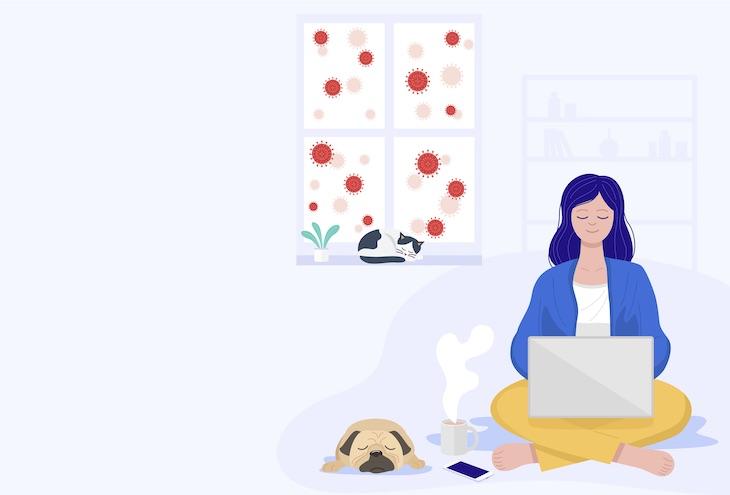Being a student in the time of COVID-19 has meant living and learning in new ways. The same can be said about professors, who have faced their own challenges and opportunities while learning to teach on digital platforms. Everyone’s situation during this time is unique. Some are on campus with safety guidelines and others are remote learning. With these drastic changes, schools, faculty, students, and families have shown tremendous resilience. Here are some lessons being drawn from this crash course in change and adaptation.
Prioritizing Health and Safety
For many students, seeing friends and classmates is a huge part of the college experience. Amari Venus Weston, a sophomore studying medical laboratory science at the University of South Dakota, notices how everyday college life has changed, from the way students are congregating in smaller groups to not being able to go to the gym. Beyond typical college activities, Weston says, “I also have to be a lot more responsible in that I have to wear my mask at all times, sanitize, and be careful who I’m around on campus because I have grandparents who are vulnerable.”
Anna Quinlan, a sophomore studying computer science at Stanford University, admits that being able to see people has been more difficult. Social distancing and remote learning mean that gathering members at Stanford AISES College Chapter events is a lot more challenging without the campus Native American Cultural Center as a hub for community.
Learning to make the best of the situation is an important lesson, says Benjamin Quanah Parker, a PhD candidate and graduate research assistant in mathematical sciences at Portland State University. “We may have to socially distance, but we should not socially isolate,” he says. “The silver lining is that I get to see and talk to my mom, cousins, grandparents, aunts, and uncles back in Washington and North Dakota every Sunday over Zoom. It’s no substitute for a hug or sharing a meal, but it’s comforting to know that they are still doing all right.”
Lessons of Remote Learning
Studying from home can be a blessing and a challenge. Jonas Henderson, a civil engineering student in year three at McGill University in Montreal, finds a lot to appreciate about being at home for this term. “As much as I’d like to be in class again, it has been nice to study from home,” he says. “I can be with my family and friends — all of whom provide invaluable support during these times.”
Parker has realized how important routine is to his productivity. “Part of what helped me wind up for the day was my journey to the office,” he says. With needing to work remotely, he converted his room into a home office and is in the process of adding improvements. “I’m getting better internet since there have been outages in the suburbs of Portland,” he says. “Overall, this has been a huge adjustment for me — it has taken me several months to acclimate to working from home.”
Quinlan echoes the idea that success in remote learning depends on whether you have access to a stable internet connection. As a computer science major, she is often the one helping family members with internet issues. “Remote learning is not the same,” she says, “but I do feel I’m learning the material.”
Fresh Perspectives
Change allows us to see familiar things with new eyes. “I was a different person back in March when USD sent me home,” Weston recalls. “I didn’t have time to prepare. But I stepped back to reflect and definitely took some time to look at life in a different way.” Weston says she’s realized how lucky she is to be away at school. “I now appreciate the little things and what I am doing to better my reservation when I am done with college.”
Parker has learned the importance of self-care. “Most importantly, I have learned that I need to forgive myself if I do not have a productive day. This is an especially hard thing for many graduate students to do in practice,” he explains. “Many people, myself included, have felt guilty because we decided not to work on a Saturday.”
Henderson has noticed that his time management skills are improving. “I’m learning how to organize my time more efficiently, and, surprisingly, I’m growing closer to the ones I love,” he says. “Because I can see only a limited number of people, I now value the interactions I have more than ever.”
Lean On Your Community
If you are struggling, you are not alone. “The student health and counseling resources were valuable for me, even before the pandemic,” says Parker. And these days, seeking out professional help can be an important part of dealing with COVID-19 and its disruptions — and everyone is dealing with disruptions. “Sometimes I sit myself down, tell myself to calm down, and try to remember that I’m not the only one who has hardships,” says Weston. “Some people are just really good at hiding their emotions.” If your school provides counseling support, mentorship programs, tutoring, or other resources, don’t hesitate to use them. They are there for you.














